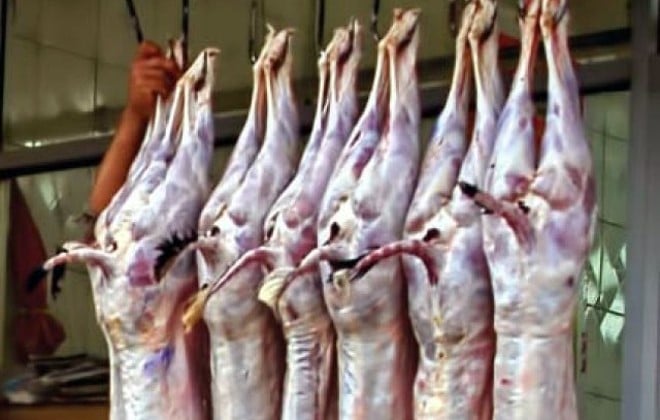
Despite raids at restaurants and butchers’ shops suspected for cooking and selling donkey meat, there is still no guarantee the exercise of selling illegal meat has ended

People these days think twice before eating meat, suspecting it of either a dead animal or a donkey. The stories of donkey meat being served at restaurants started appearing a few weeks ago, following the raids of Punjab Food Authority at food outlets and livestock department teams confiscating substandard meat supplied to Lahore.
Late last month, the Lahore police raided an illegal slaughterhouse and seized 1,600 kg of allegedly donkey meat. The meat was to be sold in the open market for public consumption. Provincial Minister for Food, Bilal Yasin, in a recent statement on the floor of the Punjab Assembly said meat of dead animal and donkey was being sold at some places in Punjab. He informed that a few of the culprits were arrested red-handed.
A few days ago, the federal government banned the export of donkey meat and hides to control increasing illegal slaughtering of donkeys. The Punjab Food Authority recently warned that donkey meat was being sold as beef.
The Economic Coordination Committee (ECC) has posed ban on the export of donkey hides till the time the provinces worked out a mechanism to properly dispose of carcasses of the animal. The ECC took the decision of ban after media reported illegal sale of donkey meat in major cities of the country.
The federal government held the provincial governments responsible for illegal slaughtering. In 2013-14, around 60,000 donkey hides were exported - the figure that jumped to 129,898 hides worth Rs147 million in the last fiscal year, according to government statistics.
Naseem Sadiq, Secretary Punjab Livestock Department, talking to TNS, says that some groups were involved selling donkey meat since 1998 but it was on a limited scale. "According to our information, donkey and substandard meat is sold at Rs 20 per kg and sold at Rs 200 per kg. After raids in Punjab, this group is suspected of supplying donkey meat to Karachi and Quetta."
He says the recent ban on exporting donkey hides and raids at various places will ensure availability of quality food.
According to government estimates, as much as 14,000 kg mince (mutton and beef) are sold almost every day only in Lahore.
Some officials say it takes around 12 days to identify the type of meat through a laboratory. It tells only the type of meat, such as whether it is beef or equine meat but cannot tell whether it is beef of cow or buffalo. Donkey meat can easily be recognised because its bones are different from beef or mutton. Donkey meat also contains more tissue veins.
A senior food control and quality official in district Lahore, talking to TNS, says the government has no laboratory to classify whether it is meat of a certain animal. "Our labs are not equipped to judge whether it is a pig, horse, donkey or cow meat," he says. "However, there would be hardly any butcher selling donkey meat at his shop. Some people might have been selling it privately on a limited scale."
He says that the gradual rise in the demand of donkey hide and increase in its price is leading to the killing of donkeys in various parts of city and may be province. "Some years ago, dead donkeys were burned after removing their hide but now, with the increasing economic interests, some people in this business also try to sell donkey meat to earn some money." He says the livestock department and Punjab Food Authority are vigorously pursuing the issue.